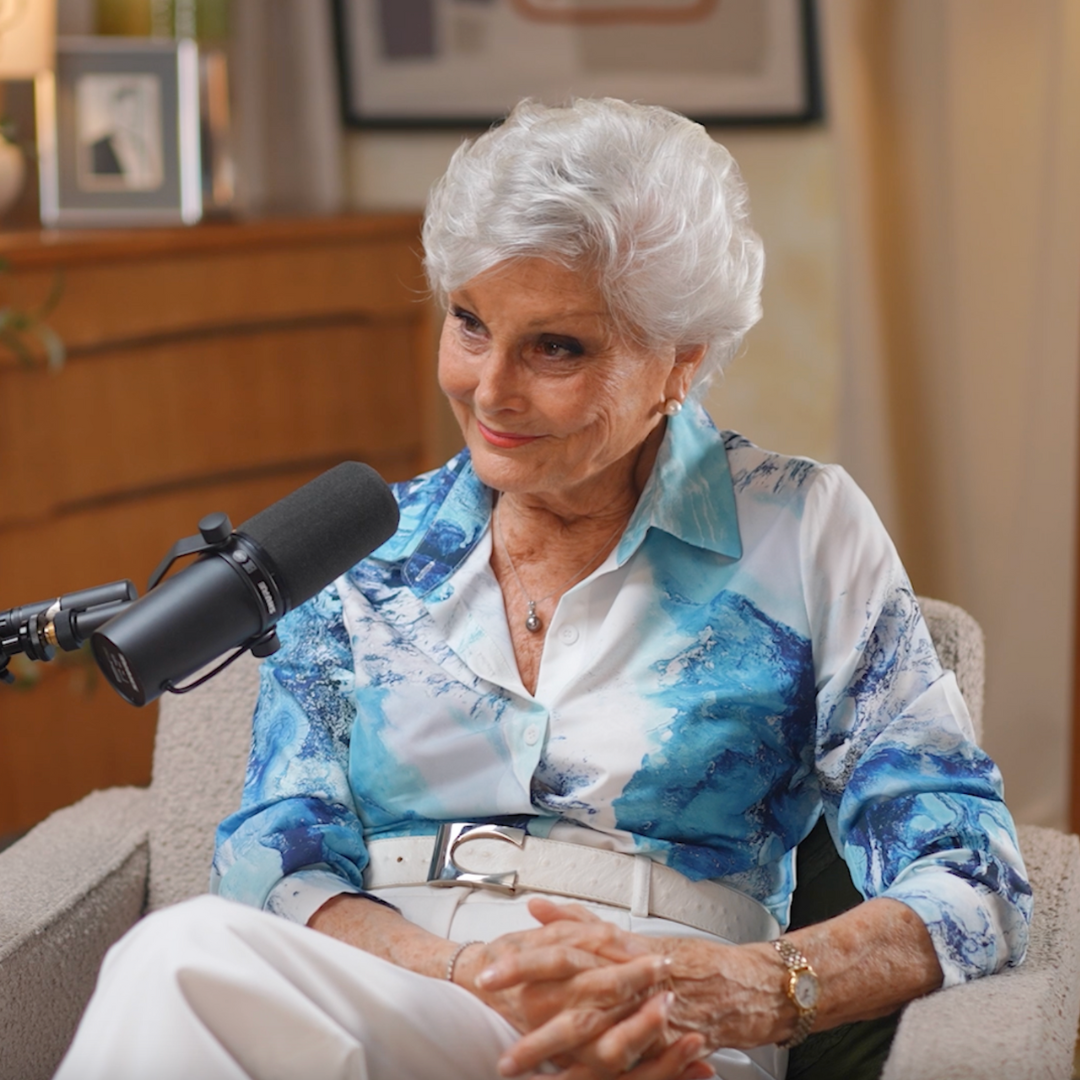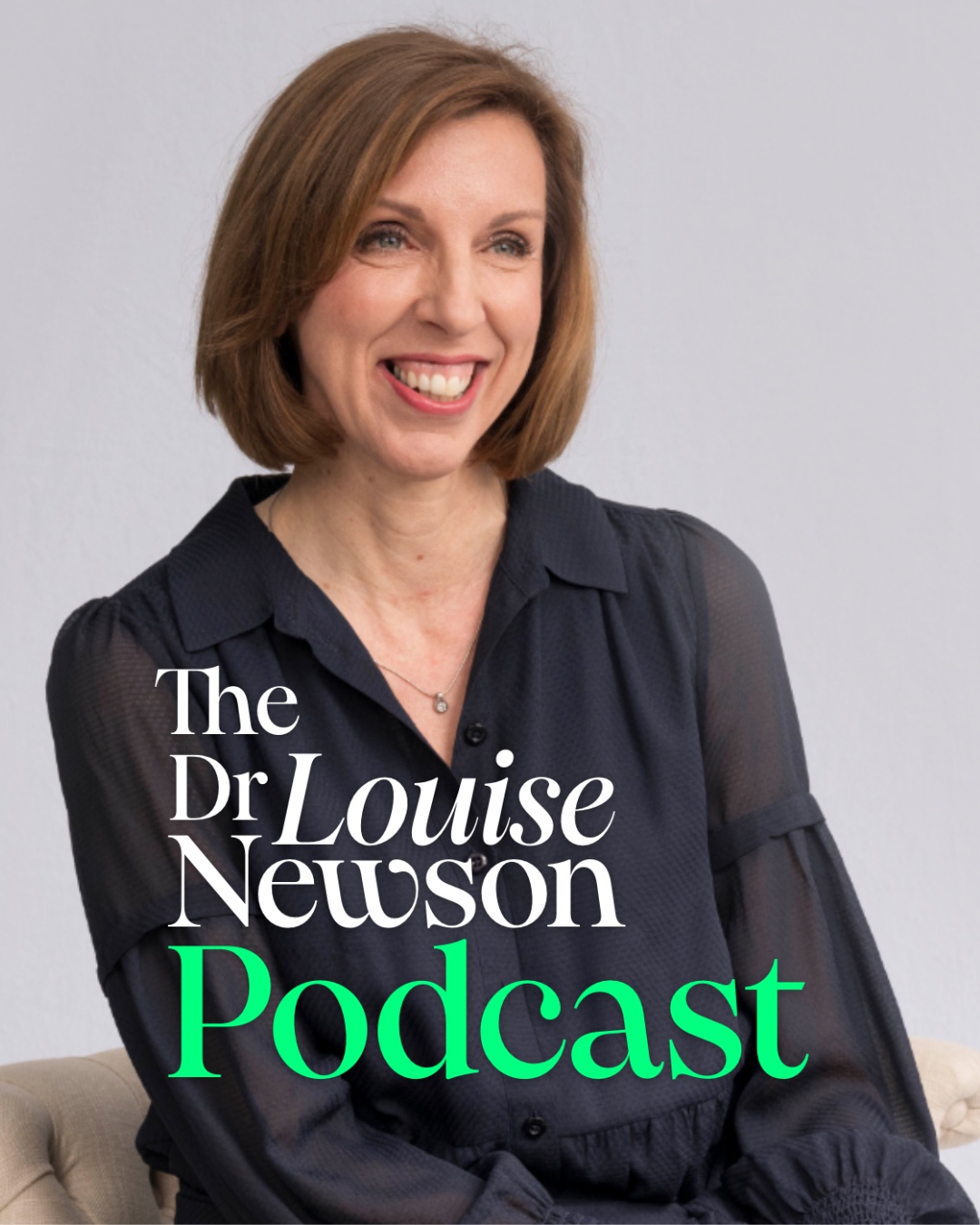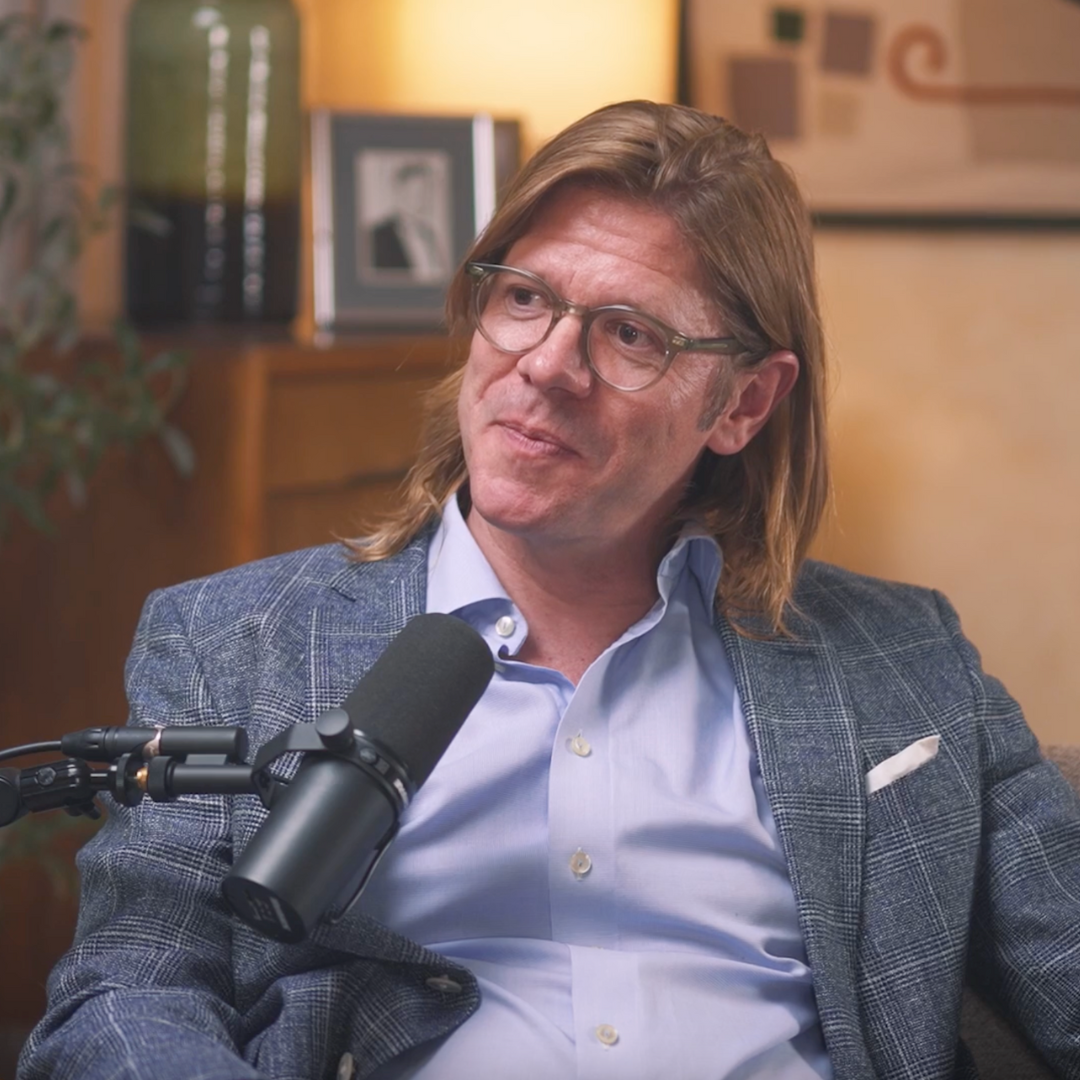Menu


This week, Dr Louise Newson is joined by the inspirational Angela Rippon, whose remarkable career in television and journalism spans nearly six decades. From breaking barriers as one of the first female newsreaders on British TV to her more recent appearance on Strictly Come Dancing, Angela reflects on the evolution of her work and the deep personal passion that drives her today: getting the nation moving.
In this uplifting episode, Louise and Angela explore how dance and movement can be powerful tools for supporting long-term health and wellbeing. Angela shares the inspiration behind her Let’s Dance! initiative and explains why she believes dance is a ‘superpower’ – capable of improving physical health, mental wellbeing, and social connection at every stage of life.
From using dance in schools to helping people with Parkinson’s, Angela makes a compelling case for why dance should be seen as an investment in our ‘wellbeing pension plan’. Whether you're eight or 80, this conversation will inspire you to see dance not just as exercise, but as joy, connection, and a key to ageing well. As Angela says: ‘My ambition is to die young – as late as possible.’
Find out more about Let’s Dance! here
We’re delighted to have been nominated in the Listeners’ Choice category for the British Podcast Awards. There’s still time to vote – click here
Email dlnpodcast@borkowski.co.uk with suggestions for new guests!
Disclaimer: The information provided in this podcast is for informational purposes only and is not intended as a substitute for professional medical advice, diagnosis, or treatment. Always seek the advice of your physician or other qualified health providers with any questions you may have regarding a medical condition. The views expressed by guests are their own and do not necessarily reflect the views of Dr Louise Newson or the Newson Health Group.
LET'S CONNECT
CONNECT WITH ANGELA


In this unique episode, Dr Louise Newson talks to her husband, who is a consultant urologist, about the lack of menopause training among medical professionals, the importance of urologists understanding the consequences of the menopause on urinary function and the benefits of HRT and vaginal oestrogen.
Paul Anderson explains some of his fascinating work as a highly specialist reconstructive surgeon, and together they discuss the rewarding aspects of each of their careers in transforming the quality of lives of men and women through surgery and menopause care respectively.
If you’ve ever wondered about what kind of man is married to Dr Louise Newson, this is the episode for you!
Paul’s 3 reasons why urologists should know about the menopause and HRT:


Professor Isaac Manyonda, professor of obstetrics and gynaecology at St George’s Hospital in London, makes a welcome return to the podcast to discuss the important hormone, testosterone, with Dr Louise Newson.
The experts discuss why awareness of testosterone in women is usually overshadowed by oestrogen and they describe what type of symptoms can be greatly improved by replacing testosterone, as well as the different preparations available, licensing issues and challenges of accessing the medication on the NHS.
Isaac’s top three tips if you’re considering testosterone:


Dr Katy Munro was a GP partner in a Hertfordshire practice for many years and developed migraine in her 40s, around the time of her own perimenopause. This led to an interest in migraine and her involvement with the National Migraine Centre, first as a patient and then as a doctor.
Katy now works as a GP Headache Specialist at the National Migraine Centre, a charity that raises awareness on migraine, shares information and advises how to manage it. In this podcast episode, she chats to Louise about what migraine is, dispels myths, and explains why migraine is not just simply a ‘bad headache’. The experts discuss the role of oestrogen in migraine, other possible triggers, and ways to help minimise the onset, severity and frequency of migraine. This hugely useful conversation is a must-listen if you or a loved one experiences migraine.
Katy has recently written a book on migraine, Managing Your Migraine, and it is available to buy now.
Katy’s three reasons to buy her book:
Managing Your Migraine by Dr Katy Munro, is published by Penguin Life Experts.


Dr Louise Newson’s new book, Preparing for the Perimenopause and Menopause, is now released by Penguin Life as part of the Penguin Life Experts series. Health journalist, Kat Keogh, worked with Dr Newson to write the book, and in this podcast episode they discuss the importance of creating factual and engaging information about the menopause, not just for women but their partners, children, friends and colleagues.
Kat Keogh has worked as a health journalist for 15 years and currently writes for a nursing journal. She collaborated with Dr Newson on her first book in 2019, the Haynes Manual on the menopause, and Kat is passionate about writing to not only educate but empower women in their perimenopause and menopause journey. Now that she has all this knowledge from working with Dr Newson, she is better prepared for menopause than her grandmother was, whose only means of coping was to go and shout down a well at the bottom of her garden!
Kat’s three reasons to buy Dr Louise Newson’s new book:
Preparing for the Perimenopause and Menopause, published by Penguin Life, is out now and has reached Amazon’s Number 1 Best Seller on its launch day, 26th August.


Journalist, podcaster, and author Lorraine Candy, who is former Editor in Chief of Cosmopolitan, Elle, Sunday Times Style, and Former Parenting columnist for the Sunday Times Magazine. She co-hosts the chart-topping weekly podcast, ‘Postcards from Midlife’, with fellow journalist Trish Halpin. During lockdown Lorraine, 53, wrote the highly successful book, ‘Mum, What’s Wrong With You? 101 Things Only Mothers of Teenage Girls Know’, a family memoir of hilarious personal anecdotes and guidance from experts on adolescent mental health and parenting as a perimenopausal woman.
From teenage hormones to menopausal hormones, in this podcast episode Lorraine and Louise discuss the importance of educating women about the perimenopause and menopause, and revisit their experiences of battling the media to help bring the taboo topic to normality. Further in, Lorraine and Louise have an honest conversation about raising teenage girls in particular, and offer advice on how to keep your cool while keeping the channels of communication open.
Lorraine’s book is heartily recommended by Louise, a mum of teenage girls herself, and it is available to buy now, published by 4th Estate.
You can find Lorraine Candy on social at:
Instagram – @lorrainecandy
Twitter – @lorrainecandy
Facebook – @sundaytimesLorraine


World renowned Consultant Gynaecologist, Nick Panay, of Hormone Health, shares his past and current interests in hormone related issues such as menopause, premenstrual syndrome, progesterone intolerance and Premature Ovarian Insufficiency.
He describes ongoing areas within women’s hormone health where there continues to be huge unmet need and how, through training, he is seeking to overcome this, not just in the UK but globally through his work with the International Menopause Society.
Together, the experts discuss the importance of their roles in empowering women and supporting them to make their own choice about treatments and both agree that as a public health issue, the menopause requires a national approach that focusses on preventative rather than reactive medicine.
Nick’s three aims for global menopause care:
Find Nick on social media at:
Twitter – @HormoneHealth92
Facebook – @HormoneHealthClinics
Instagram – @hormonehealthuk
LinkedIn – Nick Panay


In this episode, Dr Louise Newson talks to Arabella Preston, co-founder of Votary skin company, about her background as a make-up artist and what prompted her to start creating cleansing and facial oils from her kitchen table.
Together they discuss how to best care for your skin and how to know what products to buy among the crowded skincare marketplace. Arabella discusses the almost taboo topic of female facial hair and how to deal with it. She also talks openly about recognising her own early signs of perimenopause and what she has learnt about the impact of hormone changes on the skin.
Arabella’s three top tips for looking after your skin:
Find out more about Arabella’s cleansing and facial oils or her magic razors at the Votary website www.votary.co.uk


In this inspiring episode, Dr Louise Newson talks to Anita Elawure, a women’s health advocate, who shares her startingly honest experience of premature ovarian insufficiency (POI) since she was a teenager. After many years of trying to ignore her situation, she began to look into what it really meant, for her fertility and the impact of living in a postmenopausal state for the rest of her life.
Anita decided to create a platform for her to share her experiences, in the hope that she and others wouldn’t feel so alone, and provide a safe place that offered support and learning from others going through POI. Eighteen months ago, Anita founded Blossom Living with POI and, as her page says, 'You have me. I have you. Together we blossom.'
Anita’s top three tips:
Follow Anita and Blossom Living with POI on Facebook, Instagram or YouTube


Gordan Lauc is a Professor of Biochemistry and Molecular Biology, and the Chief Scientific Officer at GlycanAge. In this episode Dr Louise Newson feeds her inner geek and enjoys a fascinating conversation with Gordan as he describes his groundbreaking research into glycan molecules and their role in aging and disease processes. Even though scientist’s understanding of the biological importance of glycans is still developing, ‘glycoscience’ has now become a vital field in life and medical sciences.
Aging is the accumulation of damage in your body over time, caused by a long-term over-activation of the immune system. Analysing your body’s glycan molecules is a way of discovering your biological age and helps you know whether your current lifestyle is optimal for good health as you age. It is possible to lower your biological age by changing your diet, exercise, sleep habits and stress levels.
Professor Lauc’s top three tips:
You can find Gordan Lauc on social media at:
Twitter: @gordanlauc
LinkedIn: gordanlauc
You can also find GlycanAge on social media at:
Instagram: glycanage


Helen is a functional imagery training (FIT) practitioner and weight loss coach who discovered FIT a couple of years ago and has been helping women to achieve lifestyle changes using this effective technique. FIT is a technique that supports behaviour change using mental imagery.
Coming from two decades of research showing that mental imagery is more strongly emotionally charged than other types of thought, FIT gives people a powerful tool to strengthen and sustain motivation to reach goals they value: weight loss, increased physical activity, or better sleep for example, which in turn leads to confidence and increased self-esteem. Women often experience weight gain, lethargy, or low mood around the perimenopause and the menopause which can lead to a negative cycle of poor choices, comfort eating and misery!
Living through the pandemic and associated lockdowns with all the extra stresses it has brought has also made healthy living harder for some. FIT uses mental imagery blended with motivational interviewing (a type of empathetic counselling/coaching) to help clients identify the health and fitness challenges they face now and how they would like to feel in the future. FIT is about mindset change, not a diet technique. It teaches people to imagine in a detailed way what it feels like and looks like to achieve their ideal selves and how that will benefit their health, and also benefit the people closest to them. FIT enables people to imagine in detail the steps they have chosen to reach their ideal selves.
Helen’s three take-home tips:


In this episode, Dr Louise Newson is joined by Professor James Simon as they take a deeper look at our bones and discuss osteoporosis: what happens to your bone strength during the menopause, what are the risk factors for developing osteoporosis and what we can all do to try and prevent it.
Professor Simon’s 3 top tips for keeping your bones strong and healthy are:


Emily Fisher had always known her mother experienced an early menopause and was wary the same could happen to her. When she went to the doctors with her concerns, she was merely given the advice to ‘have children young’, but she wasn’t ready to take this step in her early 20s and decided to look into her fertility options. Investigations did indeed confirm her fears and with the help of a fertility specialist with an interest in POI, she was able to become pregnant.
After having twins, Emily suffered with multiple symptoms that could have been explained away as related to post-pregnancy hormones, but she knew there was more to it. Specialists offered conflicting advice on how best to manage her very low mood, brain fog and hot flushes. With the help of a POI specialist, Emily had to advocate for herself to get the right type and dose of HRT, and she’s now becoming more confident to talk to family and friends about what she has gone through and about the treatment she takes.
Emily’s tips for young women who may have POI:
1. Find out your family history, ask your mother, aunties, cousins, grandmothers what age they were when they started menopause. If any of them had it when young, try and speak to a healthcare professional about it. If you’re having any trouble getting pregnant, act early and if you can afford it, see a fertility specialist that specialises in POI
2. Do not give up! If you think something’s not right, see another doctor if you have to, or a nurse specialist
3. Talk to you partner, tell your friends and family. Don’t be embarrassed, we need more women to speak about this. Doing this will help you feel less alone.
You can follow Emily on Instagram at @motheringandthemenopause


If you have a male partner, this episode is definitely one for them too. Dr Jeff Foster is a GP and Men’s Health specialist who shares an interest with Dr Newson in hormones and the effects of them – or lack of them – on our lives and future health.
Together they discuss what makes up the specialities of Men’s Health and Women’s Health, and explain why seeing the bigger picture – one that looks at the whole person – is crucial to understanding and treating hormone deficiencies. Dr Foster discusses testosterone in men and how symptoms of low testosterone can mirror some menopausal symptoms. They discuss the benefits of testosterone on wider aspects of health, and caution is shared about the worrying popularity in some young men to use steroids and newer unregulated drugs such as SARMs.
Dr Foster’s advice to women is to look at the men in your life and see if they’re struggling with similar symptoms such as fatigue, brain fog, or low libido, and give them a nudge to speak to their doctor.
Dr Foster’s three tips for men are:
Dr Foster’s website is www.drjefffoster.co.uk.

Dr Louise Newson is an award-winning physician, respected women's hormone specialist, educator, and author committed to increasing awareness and knowledge of perimenopause, menopause, and lifelong hormone health. Each week, Louise dives into the newest research, treatments and hot topic issues, providing accessible, evidence-based information to empower your future health. Joined by fellow experts and special guests, with answers to your burning questions, Louise explores how hormones impact every aspect of our lives.
Described as the "medic who kickstarted the menopause revolution", Louise aims to empower a generation of women to have a greater understanding, choice and control over their treatment, bodies, minds and future health through their hormones. She is the creator of the award-winning free balance app, a Sunday Times bestselling author and the founder of the Newson Health clinic. With over three decades of clinical experience, Louise is a member of the Royal College of Physicians, a Fellow of the Royal College of GPs, a Visiting Fellow at Cambridge, a regular contributor to academic journals including the Lancet and the British Journal of General Practice, and has been awarded an honorary Doctorate of Health from Bradford University.









.avif)





